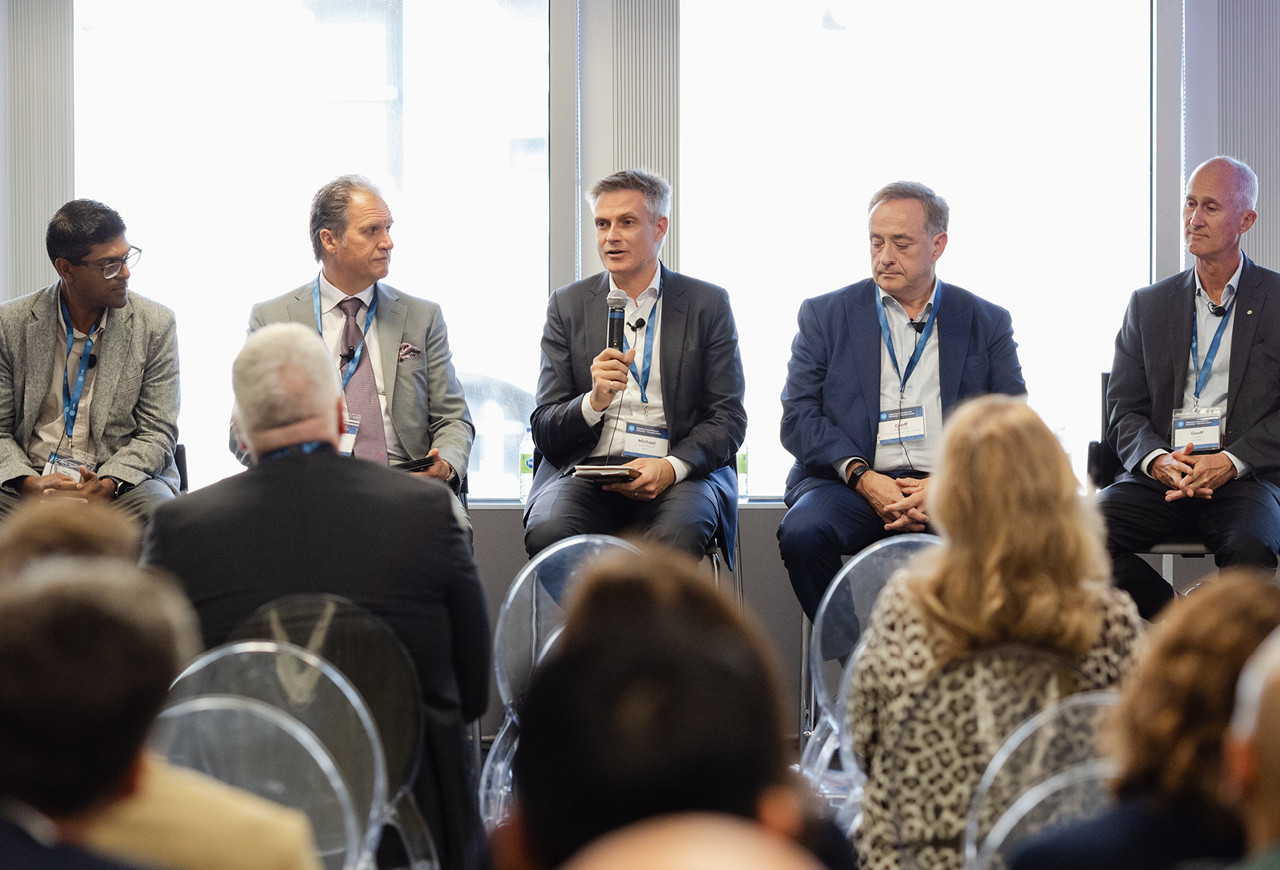As a Principal at Alate Partners, Courtney Cooper identifies and scales innovation in our industry through Alate’s portfolio of promising PropTech companies. She is a recognized expert in leading innovation initiatives and transforming businesses in the real estate sector. Like R-LABS, Courtney promotes an inclusive approach that centres around solving problems in the real estate industry. In the article below, Courtney shares her story as a female leader in PropTech and discusses changing perspectives within our industry.

In 2018, Nikki Greenberg approached me to launch the Toronto chapter for Women in PropTech. Before joining, I wanted to make sure that we were adding value to the Toronto community. Across the industry, there are some incredible real estate and tech groups, so it was vital for me to figure out how we could complement, rather than compete, with the existing networks.
I spoke with some of the PropTech founders and real estate leaders in Toronto, and the feedback I received was resoundingly positive. We’ve found that Women in PropTech encourages new groups of people to show up to our events. There is an undeniable interest in showcasing the talented women already leading the way and to encourage more women to step up to lead innovation within their organizations. We’ve also seen incredible men support this initiative and ask how they can get involved.
I’ve seen many women tackle big issues in real estate throughout my career, and I knew I also wanted to be part of that evolution. I wanted to ensure that the problem remained front-and-centre and that we were leveraging unconventional sources to solve problems in real estate.
Putting Innovation First
I started working on technology initiatives at Dream nearly ten years ago. At the time, we surveyed the landscape and spoke with many of the largest real estate companies about their technology stack and future roadmap.
For the most part, we found large accounting systems from incumbent tech companies and limited solutions focused on improving employee productivity or tenant experience. Leaders were looking for ways to simplify manual tasks, improve access to information, and leverage data and analytics. Unfortunately, there were fewer options available at that time, and many of the ones that existed weren’t very intuitive. PropTech wasn’t on the radar.
So, we did what we could. We made process improvements, implemented third-party solutions, and even built custom software and data solutions in-house.
Improving Day-To-Day Business
As I grew in my career, I could see that the environment was changing significantly. Consumer technology was much further ahead than what we used in the workplace. Our enterprise software was unnecessarily manual, and most of it wasn’t developed with real estate in mind. I was excited to see founders looking to help a wide range of real estate professionals in their jobs and improve the experience of tenants and residents in our communities.
At Alate Partners, we’ve set out to invest in founders who are accelerating the development and adoption of technology in the real estate industry. In this role, I get to meet and work with a diverse group of founders – both from within the real estate industry and serial entrepreneurs coming from other sectors – who are tackling the types of problems I was focused on as a real estate professional at Dream.
PropTech is still in its infancy, and there is a huge opportunity for growth. Companies like VTS, Honest Buildings, Convene, and Open Door launched within the last 5 to 10 years. Every day, we meet promising early-stage companies that are rethinking the way we design, build, invest, operate, and utilize space. It’s a really exciting time.
Encouraging the Next Generation of Leaders
Going forward, I’m excited to work with diverse groups to grow the real estate tech community, and I would love to see more female founders entering real estate. For me, it’s all about connecting talented individuals with real estate professionals who want to embrace innovation and change within their organization.
I think it’s important to understand the history of our industry for context; Why do we do the things we do? Why did it develop this way? The ways we’ve done things in the past may not be the ways that we do them in the future. In some cases, there are simply things that we can get rid of because they don’t make sense anymore.
From new mindsets to innovative technologies, we are more equipped than ever to meet consumer demands and solve problems. Regardless of your background, it’s important to consider what’s changed and what you can do in your role to make things better, faster, and easier. My advice to anyone looking to grow in the space is to be open to challenging the status quo.




